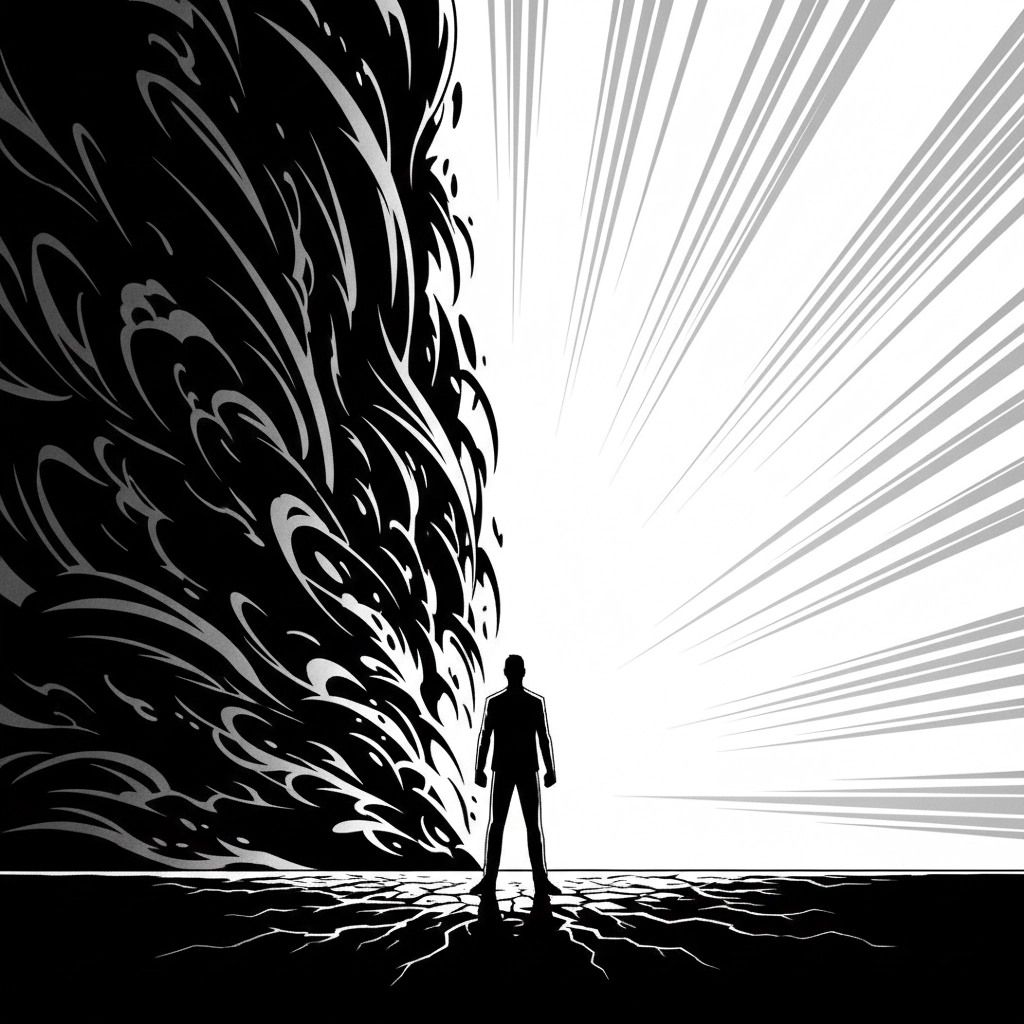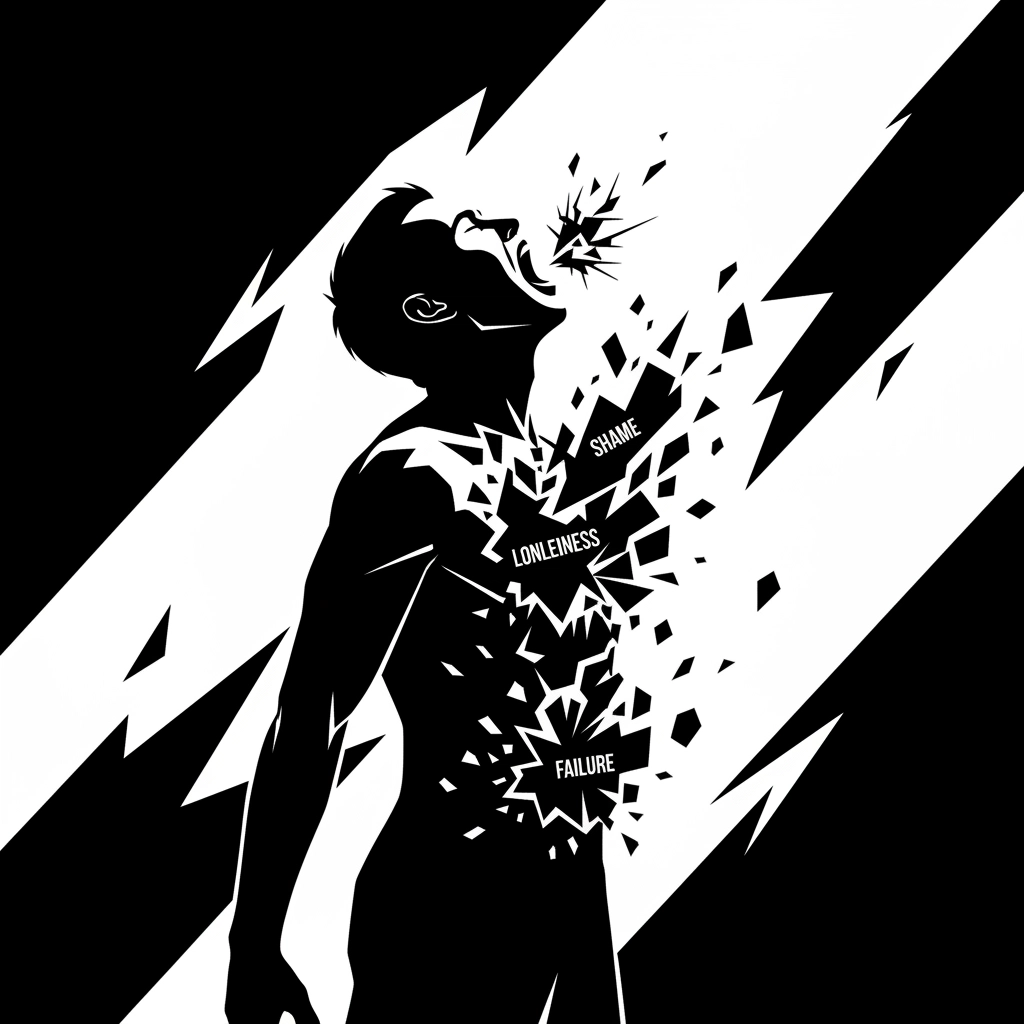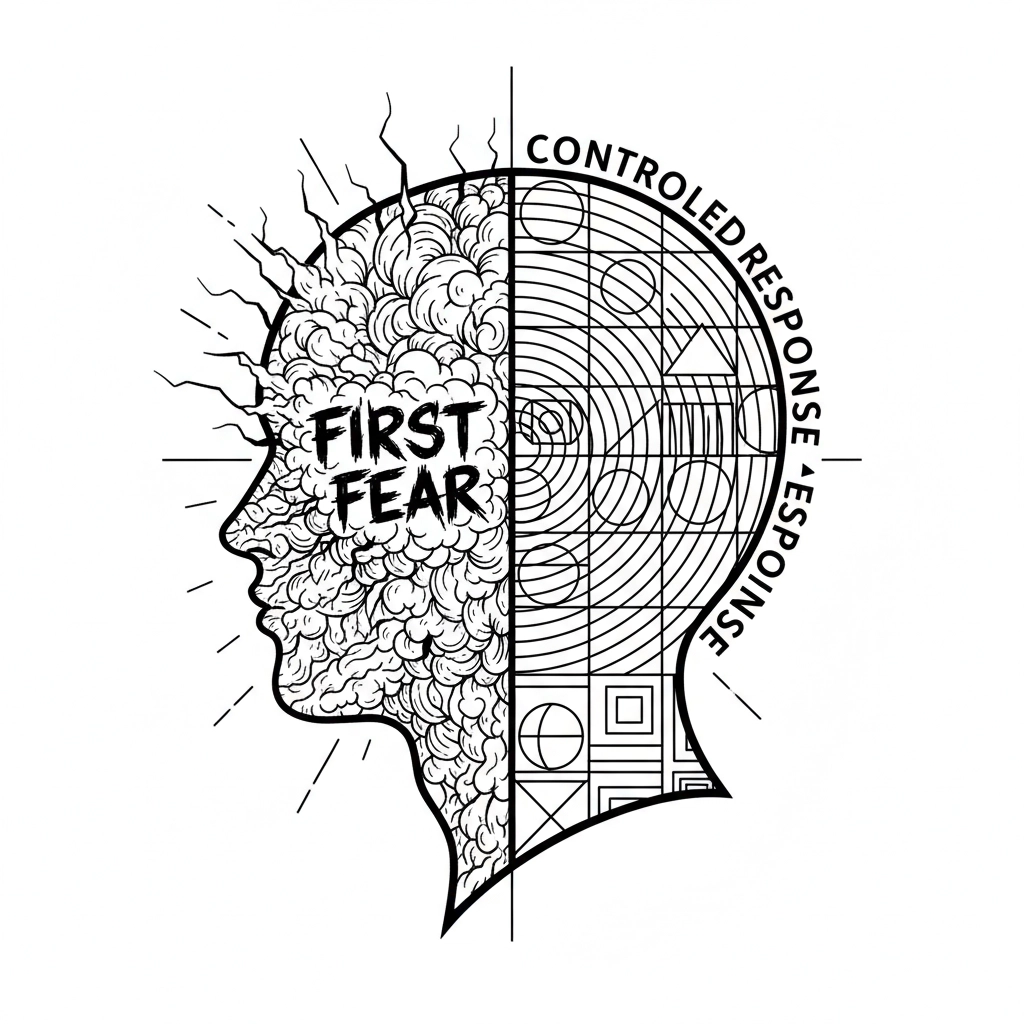
Week 2: Facing Fear – The True Challenge of Recovery
Share
Fear hits different in Week 2.
The initial excitement of starting recovery has settled. The honeymoon phase is over. Reality starts knocking, and with it comes a flood of fears you might not have expected. This is where the real work begins.
Fear isn't just an emotion in recovery: it's often the biggest obstacle standing between you and lasting change. It whispers lies about what you can't handle, what you can't live without, and what will happen if you keep going down this path.
But here's the truth: facing fear is where transformation happens.
Why Week 2 Brings the Fear
Week 2 is when your brain starts realizing this isn't temporary. The substances, behaviors, or patterns you've relied on aren't coming back anytime soon. Your mind begins to panic.
"How will I handle stress without my old coping mechanisms?" "What if I can't do this?" "What if I'm not strong enough?"
These thoughts aren't weakness: they're normal. Your brain is wired to keep you safe, and change feels dangerous. Even when that change is healthy, your nervous system doesn't always know the difference.

The Faces Fear Wears in Recovery
Fear rarely announces itself directly. Instead, it shows up wearing different masks:
Fear of Change Your addiction became your routine. It defined your days, your social circles, your identity. Without it, who are you? What does life look like? The unknown feels scarier than the familiar pain you've been living with.
Fear of Feeling Substances and addictive behaviors are master suppressors. They push down shame, trauma, anxiety, and pain. In recovery, those feelings resurface: and they can feel overwhelming. Many people fear they won't survive the emotional flood.
Fear of Shame and Judgment "What will people think? What if they judge me for needing help? What if they see me as broken?" The fear of being seen in your struggle can keep you isolated right when you need connection most.
Fear of Failure Maybe you've tried recovery before. Maybe you've disappointed yourself or others. The fear of failing again can be paralyzing. Perfectionism tells you that if you can't do it perfectly, you shouldn't try at all.
Fear of Loneliness Recovery often means leaving behind people, places, and activities that were part of your addiction. The fear that you'll end up alone, that life will be boring, or that you'll never find your tribe again is real and powerful.
Understanding First Fear vs. Second Fear
Here's something that changed my understanding of fear completely: there are two types of fear, and only one of them is under your control.
First Fear is automatic. It's the physical symptoms: racing heart, sweaty palms, intrusive thoughts. This fear just happens. You can't control when it shows up or how intense it gets.
Second Fear is your response to the first fear. It's the fighting, the resisting, the "I shouldn't be feeling this way" thoughts. This is where your power lives.
You can't stop first fear from visiting, but you can choose not to add second fear to the mix. This shift in thinking is game-changing.

How Fear Sabotages Recovery
Fear doesn't just feel bad: it actively works against your recovery:
- Paralysis: Fear makes you hesitant to try new strategies, reach out for help, or take necessary risks in your healing
- Avoidance: You might skip group meetings, avoid difficult conversations, or refuse to try new coping methods
- Stress Amplification: Fear triggers fight-or-flight responses that make everything harder: decision-making, emotional regulation, sleep, relationships
- Self-Fulfilling Prophecy: When fear convinces you that you'll fail, you might unconsciously sabotage your own efforts
The cruel irony is that fearing failure often increases the likelihood of setbacks.
Strategies for Facing Fear in Week 2
Accept That Fear is Normal Stop fighting the fact that you're afraid. Every person in recovery experiences fear. It's not a sign that you're weak or that recovery isn't for you. It's a sign that you're human and that you're changing.
Practice the Pause When fear hits, pause before reacting. Take three deep breaths. Notice where you feel the fear in your body. Acknowledge it: "I notice I'm feeling afraid right now."
Question the Stories Fear loves to tell stories about the future. "You'll never be happy without drinking." "People will abandon you if they know the real you." Ask yourself: Is this thought helpful? Is it true? Is it based on facts or feelings?
Focus on Today Recovery happens one day at a time for a reason. When fear starts projecting into the future: "How will I never drink again?": bring yourself back to today. You don't have to never drink again. You just have to not drink today.
Connect With Others Fear thrives in isolation. Reach out to a sponsor, counselor, friend, or support group. Share what you're afraid of. Often, just saying it out loud reduces its power.

Your Clothing Can Be Your Armor
This might sound simple, but what you wear affects how you feel. When you're battling fear, putting on something that reminds you of your strength can shift your mindset.
At MAP to Victori, we believe that motivational apparel isn't just about looking good: it's about carrying reminders of your courage with you. When fear whispers that you're not strong enough, your fearlessness tee becomes a physical reminder that you've chosen courage before, and you can choose it again.
The Truth About Courage
Here's what I've learned about courage: it's not the absence of fear. Courage is feeling the fear and moving forward anyway.
You don't have to wait until you're not afraid to take the next step in recovery. You take the step while afraid. That's how courage works.
Every time you choose recovery over addiction while feeling afraid, you're building courage muscle. Every time you reach out for help despite feeling vulnerable, you're proving to yourself that you can handle more than fear tells you.
Week 2 Reflection Questions
Take some time this week to journal about these questions:
- What fears kept you stuck in addiction? Which ones felt so overwhelming that using seemed like the only option?
- What fears are you facing right now in recovery? Be specific.
- Which fear feels the biggest right now? What story is it telling you about your future?
- When you think about your fear, where do you feel it in your body?
- Can you think of a time when you did something brave despite being afraid? What was that like?
Action Steps for This Week
Journal About Your Biggest Fear Right Now Write it down. Get specific. What exactly are you afraid will happen? Often, when we put fear into words, it loses some of its power over us.
Share It With Someone You Trust Fear grows in darkness and shrinks in the light of connection. Find someone safe: a sponsor, counselor, trusted friend, or family member: and share what you wrote about.
Practice One Small Brave Act Daily This doesn't have to be huge. Maybe it's making eye contact when you talk to someone. Maybe it's speaking up in a group meeting. Maybe it's trying a new coping skill. Small acts of bravery build courage over time.
Remember: you've survived 100% of your difficult days so far. You're stronger than your fear gives you credit for. Week 2 might be challenging, but it's also where you discover just how much courage you actually have.
The fear you're feeling? It's not a stop sign. It's a sign that you're growing, changing, and moving toward something better. Keep going.